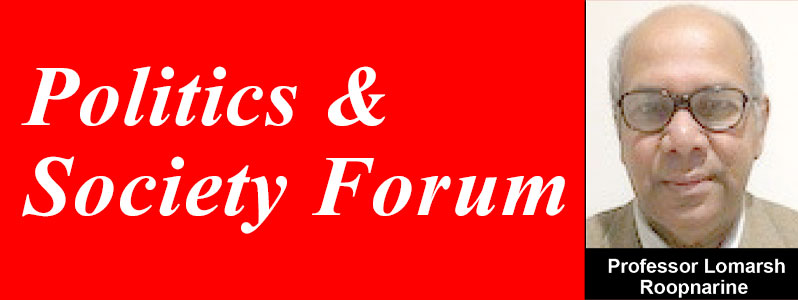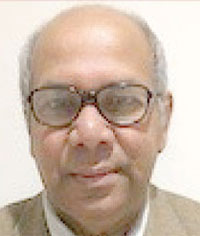THERE has been a resurgence of attention on Indians in Guyana and the wider Caribbean emanating from, I suppose, the discussions on Indian Arrival Day in May.
This attention is forward-looking and should be applauded. Apart from what I have been doing in this space, and the ideological writings on Indian Heritage Month in Guyana Times, there was recently a panel on the online programme named Indo-Caribbean Cultural Centre focusing on “Should Indians in the Diaspora demand reparations for indentureship?”
The meaning of reparation is to make amends for a wrong an individual (s) has done by paying money or helping those who have been wronged. Most generally, the decision is made in a court of law or by a government or an institution.
The money is either given to the victims when they are still alive or to the descendants of the victims. The word reparation is, of course, associated with Africans in the Americas, and, in the case of the Caribbean and Guyana, a 10-point plan is premised on a “path to reconciliation, truth, and justice for the victims of slavery and their descendants,” according to CARICOM website.
I listened to the recording of the meeting “Should Indians in the Diaspora demand reparations for indentureship?” on YouTube a day later with the intent to see and hear how indentureship would be factored into the reparation claim.
Before doing so, I googled the 10-point plan and did not see the word indentureship in the title or in the text elaborating on the 10-point plan. Unless I was looking at an outdated website, which is unlikely, I did not see anything resembling indentureship, although it was said on the panel that indentureship was included and that some Indians in Trinidad were involved in the drafting process of a 10-point plan about five years ago.
So, the panel, mostly of Indians from all over the former indentured colonies, was posing the question if Indians should also demand reparation like Africans in the Caribbean through CARICOM. The question was directed to the Reparation Department of the University of the West Indies, and the key speaker was Verene Shepherd, a long-time senior lecturer at the previously mentioned institution. I will share some thoughts as to what I heard.
Remarkably, everyone on the panel agreed that slavery and indenture had a common oppressor, and, that is, the white colonialists who used their power to brutalise Africans and Indians to reap material and human benefits to satisfy imperial aims and objectives.
The argument then is that achieving any form of reparation will require an approach of unity rather than being the victim of the divide and rule that so epitomised the colonial period. If you are a descendant of slavery and indenture, it is axiomatic that you would agree with the “united we stand and divided we fall” axiom. I, therefore, support, reparation.
That said, there are some challenges to overcome with the common oppressor’s understanding of reparation. In the meeting, it was said that Africans received nothing from slavery, rightly so, and Indians received something, either some land or money, even in cents, rightly so.
Notwithstanding some inaccuracies about Indians receiving land and money, and how and why they received them, one is pushed to ask whatever happened to the unity approach of achieving some forms of reparation from the wrongs of slavery and indenture?
Moreover, one presenter stated that CARICOM is made up of Caribbean countries with Indians and that their concerns should also be heard. Many more other things were said by the Indian panellists, and I will save you from them here, other than to say the late Brij Lal told me once that “many individuals write and speak on indenture, but they do not know much.” His statement is still spot on when listening to the recording.
In my mind, the two-hour meeting on what should have been an important topic was more of fluff, an opportunity to cut loose. The Indian presenters were simply begging to have a seat on the reparation table and to be more actively included, speaking that the wrongs of indenture should be presented by themselves, and not be an appendage to the process.
I think Africans in the Caribbean, from all walks of life, have put in a lot of work on the 10-point reparation plan, which should not be conflated with other historical wrongs. Each historical wrong, whether based on ethnicity, race, class, or gender, should be discussed, planned, and executed on an individual basis rather than collectively since each of them, although sharing a common experience, is different.
I do not see indenture being on each of the 10-point plan, as so wished by the Indian panellists, for obvious reasons, already stated. My suggestion is to examine the Indian indentured contract as it evolved/devolved during the indenture period to determine the induced violations or infractions and build a case that can potentially be heard in a court of law (lomarsh.roopnarine@jsums.edu).




.png)









